Drug Addiction Treatment in Leominster
Leominster drug rehab for in-patient and out-patient drug detox and alcohol treatment. Addiction and chemical dependency recovery program near Leominster MA. Drug and Alcohol Rehabilitation techniques used in our Worcester rehab and detox centers near Leominster. Programs for drug and alcohol abuse that include inpatient and outpatient recovery for addiction are explained as well as the benefits and drawbacks of both. Many health insurance providers will pay for alcohol and drug rehab. Call us to find out what options are available for you.
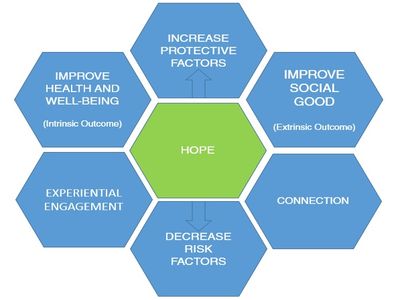
Mental Dependency – What Is Psychological Dependency?
The term psychology is normally suggested to refer to behavior processes that connect to the emotions or the mind. The term psychological dependency is typically meant to define the emotional and also psychological processes that are associated with the development of, as well as recuperation from, a compound use condition or drug addiction.
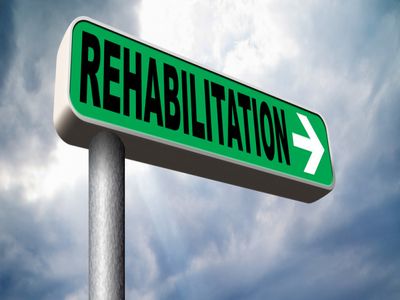
Compounds related to Mental Dependence
The basic monitoring here is that all compounds of misuse are associated with both mental and also physical facets of dependence; however, many sources separate the elements of the advancement of a substance use disorder and also the withdrawal process right into compounds that are connected with withdrawal symptoms that are primarily psychological in nature. Typically, these substances include:
Most uppers, consisting of drug and also Ritalin
The majority of hallucinogenic medications, such as LSD
Cannabis products (although there is placing evidence that there may be a substantial physical procedure of withdrawal that occurs in persistent customers of cannabis items).
Several inhalant products.
Several psychotropic drugs, such as antidepressant drugs.
Treat of mental reliance
One extremely important difference that could be made pertaining to the distinction between medications that are considered to lead to physical versus psychological dependency is that the withdrawal process from a few of the medicines that are considered to be strong prospects for physical dependency, such as alcohol, benzodiazepines, and barbiturates, can cause the advancement of potentially deadly seizures. Nonetheless, this problem does not typically accompany withdrawal from opiate drugs, which are additionally thought about to be exceptionally physically addictive. The recovery procedure for people that have actually developed material usage disorders to these substances should be purely checked by a doctor or psychiatrist that focuses on dependency medicine to determine any prospective seizure task and also quickly address it.
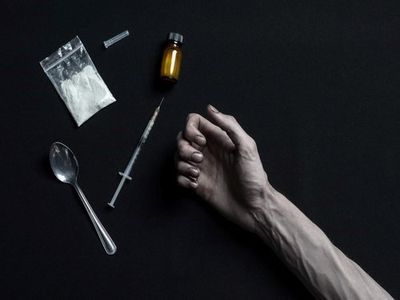
Options for Treatment in Leominster
Medications
Several drugs have actually been located to be efficient in treating addiction to opioids, alcohol, or nicotine in adults, although none of these drugs have actually been approved by the FDA to deal with adolescents. More recent compounds proceed to be examined for perhaps treating substance use problems in grownups and teenagers, however none other compared to those noted below have shown definitive outcomes.
Keep in mind that there are currently no FDA-approved medicines to treat dependency to marijuana, cocaine, or methamphetamine in any type of age group.
Buprenorphine reduces or eliminates opioid withdrawal symptoms, consisting of medication yearnings, without producing the “high” or dangerous side effects of heroin and other opioids. It does this by both triggering as well as obstructing opioid receptors in the brain (i.e., it is what is known as a partial opioid agonist).

Methadone additionally avoids withdrawal signs as well as minimizes yearning in opioid-addicted individuals by triggering opioid receptors in the mind (i.e., a complete opioid agonist). It has a lengthy background of usage in treatment of opioid dependency in adults and is offered in specially qualified methadone therapy programs. In choose instances and also in some States, opioid-dependent adolescents in between the ages of 16 and also 18 might be eligible for methadone treatment.
Residential Drug Rehabilitation in Leominster
Sixty-two percent of those that had professional help in treating their addiction stayed in healing for 3 years after treatment, contrasted to only 43 percent of those who really did not get therapy. This reveals that obtaining professional therapy is crucial to reaching the ideal outcome.
Residential Leominster drug rehab particularly is usually extra valuable since it needs that the individual stay in treatment for the amount of time required to impact change.
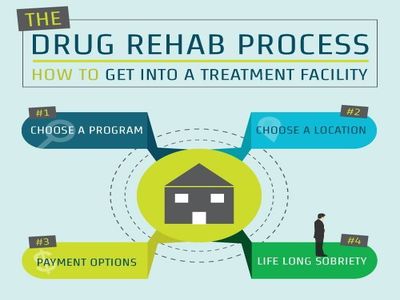
In the NIDA write-up it is stated that an essential aspect of medication addiction therapy is remaining in treatment long enough to finish the various components of the program, since this makes it possible for people to arise with the highest level of self-confidence in their newly found out abilities and devices for continuing to be in healing. As a result of this, each of the parts of a top notch therapy program functions best when it is designed to help individuals survive the whole therapy procedure.
Residential rehab provides 24-hour care in a setting where the emphasis is assisting people accomplish as well as keep healing from drug addiction. Due to this, these programs have the ability to offer a breadth of services that are most likely to help clients develop abilities and tools to stay in recuperation well after leaving the program. These consist of:
Clinically sustained detoxification and also withdrawal, if required.
Medically supported upkeep treatment, if required.
Specific therapies, such as Cognitive Behavior Modification.
Family members or pairs therapy.
Building skills and devices that are needed permanently message therapy.
Follow-up care after the defined program ends.
Outpatient Treatment
Outpatient rehabilitation permits customers to live in your home and join treatment at an outpatient center during the daytime. This sort of program pays for people a lot more freedom in treatment, giving clients the capability to maintain a work and stay up to date with day-to-day obligations at home. Those simply beginning outpatient care could need day-to-day sessions with a therapist or scientific personnel, while those more along in recuperation (or with much less severe addictions) could be successful with part-time sessions once or twice each week.
Outpatient programs generally last anywhere from one to three months, as this is the home window of time in which those in recuperation are most vulnerable to regression. The size of time a customer invests in outpatient treatment depends on their progression in recovery, which takes into account their psychological stability and also physical health and wellness.
An outpatient drug rehab program supplies alcohol and drug treatment sessions that could be arranged throughout various times throughout the week. This timetable allows patients to proceed with their normal obligations and also continue living at home, however they are required to explore therapy at their assigned times for counseling and drugs.
Recuperation
Recovery is a goal of alcohol treatment, and recovery-oriented systems of care are being developed to support that goal. Individuals who are “in recovery” recognize what it implies to them as well as how vital it is in their lives. They need no formal definition, but for the public and also those that research study, examine, as well as create plans concerning dependency, recuperation is a principle that can sometimes appear vague.
Essentially, healing is a complex and dynamic procedure including all the favorable advantages to physical, psychological and also social health that could occur when people with an addiction to alcohol or medicines, or their member of the family, get the aid they require.
Therapy
Counseling is a vital part of substance abuse treatment for many individuals. Cognitive behavior modification, family therapy, as well as various other treatment techniques can aid individuals recovering from opioid dependency remain clean.
12 Step Programs
The 12-Step philosophy spearheaded by Alcoholics Anonymous is utilized by concerning 74 percent of treatment facilities. The fundamental property of this version is that individuals could aid each other accomplish and preserve abstinence from materials of misuse, yet that healing can not transpire unless people with dependencies surrender to a greater power. The 12-Step movement can be a pressure forever for many people, but some have problem with just what they interpret as a strong religious element of the program. Numerous addiction therapy programs provide options to 12-Step approach for those who choose an even more secular foundation for treatment.
SMART Recovery
SMART Recovery is an abstinence-based, not-for-profit company with a practical self-help program for individuals having issues with drinking and making use of. It includes numerous concepts and methods to assist you change your life from one that is suicidal and also dissatisfied to one that is positive and enjoyable. SMART Recovery is not a spin-off of Twelve step programs. Nobody will identify you an “alcoholic”, an “addict” or “diseased” nor “helpless”, and if you do not believe in a religion or spirituality, that’s fine, also. We instruct good sense self-help treatments designed to encourage you to stay away and to establish an extra favorable way of life. When you are successful at following our technique, you could graduate from the program, or you may stay around to assist others.
Client-centered strategies
In client-centered substance abuse therapy, you can assist determined aspects of your medicine addiction therapy plan including:
- The pace at which you progress.
- The length of your keep.
- The objectives of your program.
Along with specialist team the addict determines specifically just what they wish to get out of their keep. Weekly, you and your individual therapist will certainly evaluate your medication addiction treatment as well as decide whether or not you are reaching your goals, failing or exceeding them and readjust your treatment plan as necessary. The partnering is really crucial below- your objectives are your roadmap via therapy.
Psychoanalysis
The psychoanalysis view recommends dependency is primarily a disorder of self-regulation. Addiction is called a defensive approach to stay clear of feeling of vulnerability or powerlessness. Substance abuse is a futile attempt to compensate for internal vacuum without success. The addict attempts to make up using habit forming habits for excruciating subjective states of reduced self-esteem, uncertainties and also anxiousness. The use of medications provides a feeling of approval as well as feeling of temporary sure of oneself. Addict replaces an imaginary world, where he remains in full control, for the real world, where he really feels ineffective and also out of control. Duplicated use of medications to obtain alleviation comes to be a lifestyle. Alleviation is temporary, but in the lasting substance abuse becomes an end in itself. The dependency trouble protects against the user from comprehending about her distress, as well as the growth of psychological capacity to self-soothe.
Relapse prevention
A significant cognitive-behavioral method to dependency recuperation and treatment has actually been Alan Marlatt’s (1985) Regression Prevention strategy. Marlatt describes four psycho-social procedures appropriate to the addiction as well as regression procedures: self-efficacy, end result expectations, attributions of origin, and decision-making processes. Self-efficacy describes one’s ability to deal properly and properly with high-risk, relapse-provoking scenarios. Outcome expectancy describe a person’s assumptions regarding the psychoactive effects of an addicting substance. Acknowledgments of causality describe a person’s pattern of beliefs that regression to substance abuse is an outcome of inner, or instead outside, short-term causes (e.g., permitting oneself to earn exemptions when faced with what are judged to be uncommon circumstances). Lastly, decision-making processes are implicated in the relapse procedure also. Substance use is the result of several decisions whose cumulative impacts result in consumption of the intoxicant. Additionally, Marlatt stresses some decisions- described as apparently pointless decisions- may seem irrelevant to relapse but might really have downstream implications that position the user in a high-risk scenario.
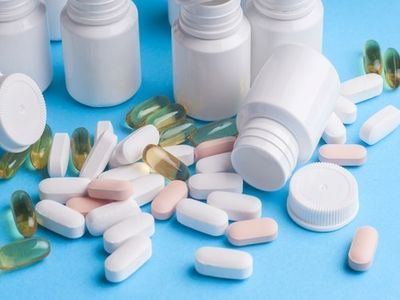
: As an outcome of heavy rush-hour traffic, a recovering alcoholic may decide one mid-day to exit the highway and also travel on side roads. This will lead to the development of a risky situation when he realizes he is unintentionally driving by his old preferred bar. If this individual has the ability to employ effective coping methods, such as sidetracking himself from his cravings by switching on his preferred music, then he will certainly prevent the regression danger (COURSE 1) as well as enhance his efficiency for future abstaining. If, nonetheless, he lacks dealing devices- as an example, he might begin ruminating on his food cravings (COURSE 2)- after that his efficiency for abstinence will certainly decrease, his expectations of favorable end results will increase, as well as he could experience a gap- an isolated return to substance intoxication. Doing outcomes in exactly what Marlatt refers to as the Abstaining Infraction Impact, identified by shame for having actually gotten intoxicated and low efficiency for future abstinence in similar alluring situations. This is an unsafe pathway, Marlatt proposes, to full-on relapse.
Dual Diagnosis Explained
When a client is diagnosed with both a drug abuse disorder as well as a psychological wellness issue, after that it is called a Double Diagnosis. Usual mental wellness conditions that tend to occur together with addiction consist of:
- Anxiousness conditions.
- Modest to severe depression.
- Individuality problems.
- State of mind disorders.
- Schizophrenia.
As they come to be much more and extra overwhelming, the client may try to “deal with” those symptoms by using different medicines. On the other hand, someone dealing with an eating problem may try to advance their weight loss attempts by abusing energizer medications like drug or crystal meth.
In other instances, the medicine dependency comes first and also because of chronic drug abuse, mental wellness issues could create later on because of that drug use changes brain function over time.
Sober Living Home
Sober living houses are team houses for those recovering from an addiction. The majority of these houses are privately owned, although some team homes are had by companies and may also be had by charity organizations. Residences are generally located in silent locations to assist make certain a tranquil environment for people in early recuperation.
These kinds of residences are different from rehabilitation facilities; rehabilitation facilities usually use an even more intensive healing experience as well as give citizens less freedom. Homeowners may additionally be subject to periodic medication testing to show continuous soberness.
